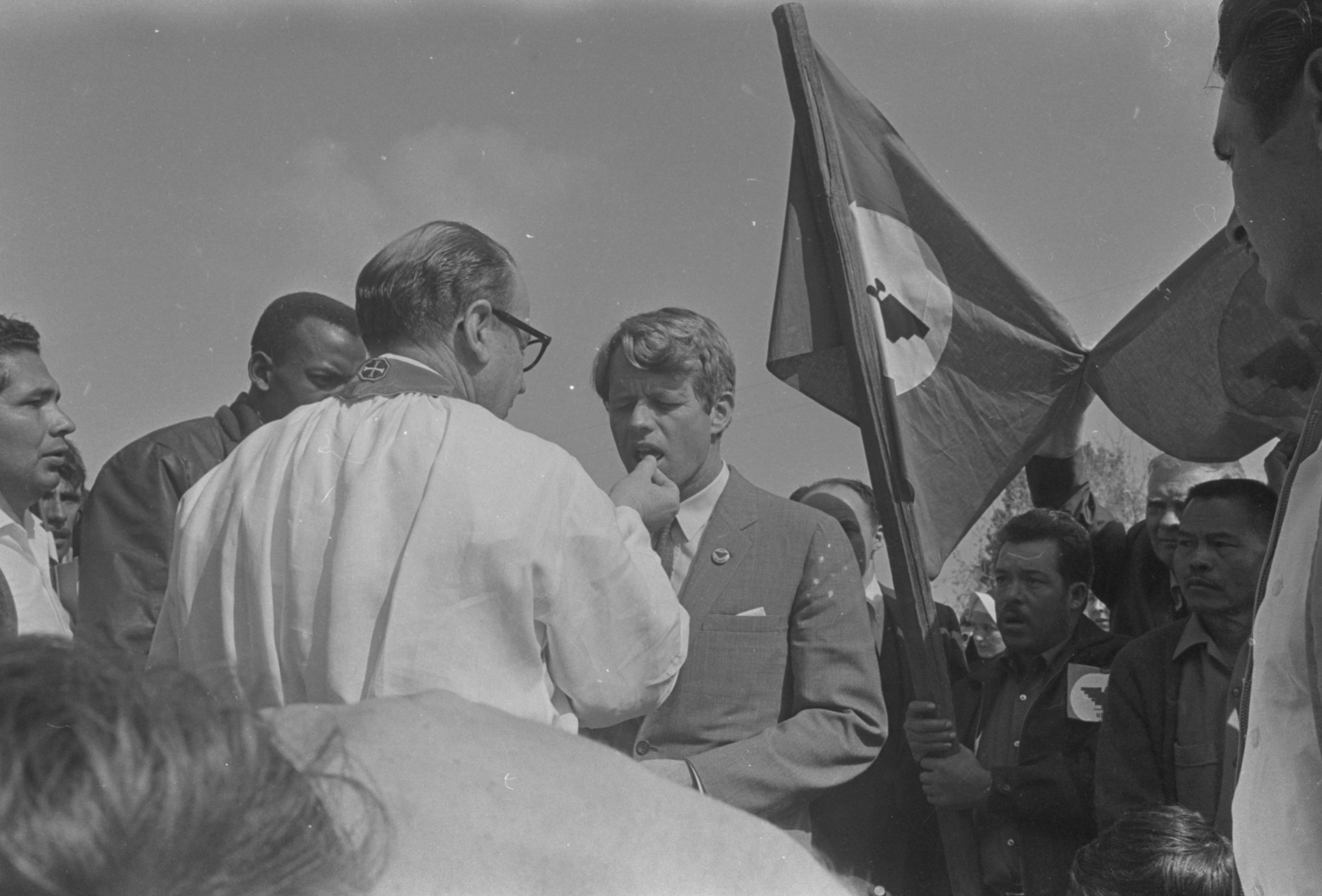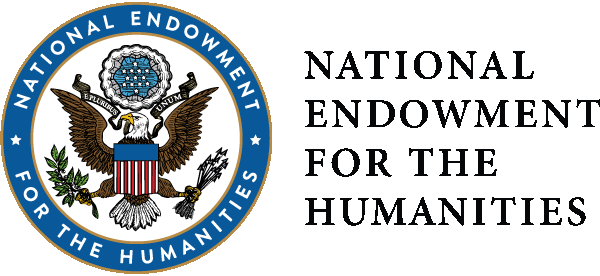César Chávez’s Fasting
César Chávez’s Fasting
Helen Chávez, Senator Robert F. Kennedy, César Chávez, and Juana Estrada Chávez at a mass ending César Chávez’s fast at Forty Acres, Delano, March 10, 1968. Photo by John Kouns.
On Wednesday, February 14, 1968, César Chávez declared at a union meeting that he was beginning a fast in response to some union members and leaders who resorted to violence when violence was used against them. Chávez had studied the words and actions of Mahatma Gandhi and Martin Luther King and firmly believed that violence would not further la causa. Chávez was a man of great faith, and fasting was as much a spiritual journey as it was a political statement.
Religious of the Sacred Heart of Mary Sisters carry boxes of bread to the United Farm Workers Organizing Committee (UFWOC) event at Delano Memorial Park commemorating the end of César Chávez’s fast for nonviolence, Delano, March 10, 1968. Photo by John Kouns.
The fast Chávez undertook in 1968 was an atonement for the violence committed by other members of his organization, and it spoke to the deeply faithful farm workers. He wanted to bring back into focus their fight for justice, prevent further acts of violence by the strikers, and rededicate the movement. Many farm workers were Catholic, and this faith was a unifying force within the union.
Father Eugene Boyle offers Senator Robert F. Kennedy the sacrament of communion at Forty Acres, Delano, March 10, 1968.
In 1965, Boyle supported Martin Luther King’s protest in Selma, Alabama. He also joined César Chávez in the 1966 march from Delano to Sacramento, advocating for farmworkers. He learned to fly so he could quickly fly anywhere in California to join picket lines, rallies, marches, fasts, demonstrations, and Masses. He officiated mass on the last day of César Chavez’s first fasting on March 10, 1968. Boyle taught the Social Action Seminar at St. Patrick College Seminary but faced opposition from Archbishop McGucken due to his vision of modern priesthood and training that McGucken thought was too political.
His supporters began conducting nightly Catholic services at Forty Acres, hoping to lift his spirits and show support. Midway through his fast, on February 26, Chávez was scheduled to appear in court for charges the growers brought against him, claiming he had been inciting violence. His followers came to the courthouse and quietly lined the corridors of the building in prayer.
Farm workers were there to create a spiritual space of safety and reverence for Chávez’s weakening condition. After 25 days, Chávez finally ended his fast on March 10—he had lost 35 pounds. Senator Robert Kennedy traveled to Delano to participate in the event. Union organizers planned a non-denominational service, with Jewish and Christian prayers and religious leaders. Father Eugene Boyle presided over the Catholic portion. Nuns from the Religious of the Sacred Heart of Mary distributed loaves of bread so the crowd could partake in the symbolic breaking of bread. Kennedy, a great supporter of the farmworker movement, was also Catholic.
Senator Robert Kennedy gives César Chávez a piece of bread ending Chávez’s 23-day fast. Helen Chávez is seated next to Senator Kennedy, Delano, March 10, 1968. Photo by John Kouns.
Tom & Ethel Bradley Center
California State University, Northridge
18111 Nordhoff Street, Northridge, CA 91330
Phone: (818) 677-1200 / Contact Us


